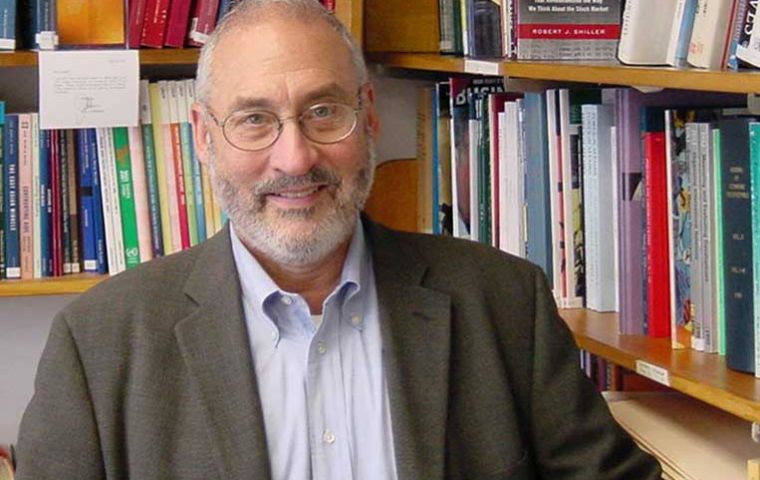MercoPress. South Atlantic News Agency
“Fed rate cuts will not make difference” warns Stiglitz
 Economist Joseph Stiglitz
Economist Joseph Stiglitz Nobel Prize winning economist Joseph Stiglitz said the current financial crisis is the worst the world has seen since the Great Depression of the 1930s and the US Federal Reserve move to cut interest rates will not make much difference.
"It will have some impact - it will do a little bit to stem the blood - but it's not addressing the fundamental problems underlying the collapse of the financial sector," he told Radio New Zealand in Wellington. Stiglitz, who won the Nobel Prize in economics in 2001, is a former chief of the World Bank and chaired former US president Bill Clinton's council of economic advisers and is currently in New Zealand on a speaking tour. He said the Federal Reserve's move to cut its funds rate by three quarters of a percentage point was "just trying to ease the economy down rather than try to address the underlying problems". Stiglitz said United States financial crisis will get much more serious, the Federal Reserve has little ammunition left and the kind of measures that would help are unlikely to appeal to the George Bush administration. "The Fed can keep the system from collapsing but it can't get the banks to lend - to each other or to the market" said Stiglitz who suggests stemming the bleeding from the bottom by bailing out the people who have been encouraged to take out injudicious loans but now face losing their homes. An estimated two million people in the US are forecasted to loose their homes. Stiglitz expects the situation to get much more serious as a vicious circle develops with banks husbanding their resources, restricting lending and deepening the downturn. A series of interest rate cuts and liquidity-boosting moves by the Federal Reserve and other central banks has so far failed to persuade markets that they have touched bottom. Some commentators such as Paul Krugman have started to worry about the risk of a Japanese-style liquidity trap where interest rates get so low that monetary policy ceases to have any traction. Calls for the US Government to take action have intensified. But the only fiscal measures so far notably a 150 billion stimulus package, were too little, too late and badly designed, Stiglitz said. The Bush Administration vetoed more effective moves, "like increasing unemployment insurance to stimulate demand". He also suggested it might be useful to have a public body buying up property left vacant by the housing market collapse in order to underpin house prices, he said. The plan is to reduce mortgages to 90% of the market value of homes. "But that idea had been vetoed too", said Stiglitz. The current devaluation of the US dollar might be necessary, in light of the large trade and current account deficits the US had built up, but it had the effect of spreading a lot of the cost of adjustment to other countries, Stiglitz cautioned which means "US problem do become the world's problems".




Top Comments
Disclaimer & comment rulesCommenting for this story is now closed.
If you have a Facebook account, become a fan and comment on our Facebook Page!